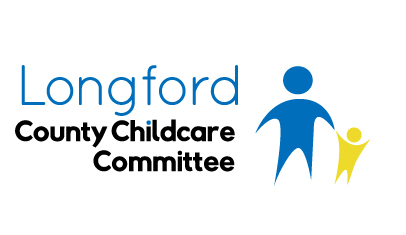Friday, 10th October 2025
The Minister for Children, Disability, and Equality, Norma Foley, today announced she will make
additional funding available to support children with disabilities access State-funded
preschool.
Additional capitation, provided through the Access and Inclusion Model (AIM), will increase by
10 percent.
This will directly benefit early learning and care services who support children with disabilities
to access and participate in mainstream pre-school settings.
Around 8,000 pre-school children with disabilities are currently supported by the highest level
of the Access and Inclusion Model supports.
Providers can use the Access and Inclusion Model funding either to reduce the number of
children they are catering for in a pre-school room or to fund an extra staff member.
This is intended to provide the maximum benefit from the AIM funding to children with
disabilities to ensure their meaningful participation in pre-school with their peers.
All services in receipt of this capitation will benefit from a 10 percent capitation increase from
October 13.
This will match the 10 percent increase in the minimum rates of pay for over 35,000 early years
educators and school age practitioners, which have been provided for in a new Employment
Regulation Order. This also comes into effect on October 13 and is supported by the
Government’s Core Funding Scheme.
Minister Foley said:
“The new proposals for a 10 percent increase in minimum pay for early years educators next
week on October 13 represent a significant step toward ensuring fair pay for educators and
practitioners working in the sector.
I am pleased to announce that the same 10 percent increase will be provided to providers in
receipt of Level 7 capitation under the Access and Inclusion Model.
This is a recognition of essential work being done every day by early years educators to create
inclusive, welcoming environments where every child can thrive.
It reflects our ongoing commitment to inclusion and ensures that providers and early years
educators are appropriately supported in delivering high quality care for all children through the
Access and Inclusion Model.”
Since its introduction in 2016, the Access and Inclusion Model has had a major impact on the
lives of children with disabilities and additional needs in pre-schools.
The proportion of services that have a child with a disability or additional needs attending has
increased by over 50% during this time. There are currently around 8,000 children benefiting
from the Access and Inclusion Model.
In total, 35,000 children have received more than 80,000 targeted supports in over 4,800
services nationally since the Access and Inclusion Model was set up.
The Access and Inclusion Model originally provided supports for pre-school children with
disabilities during the free, universal, two-year Early Childhood Care and Education Programme
(ECCE).
Since September last year, Access and Inclusion Model supports have been available to
children outside the Early Childhood Care and Education Programme (ECCE), both in and out of
term. This means they can avail of the supports in their local provider for a total of six hours per
day during term time and six hours per day out of term.
An additional €5.4 million has been allocated by the Government to the Access and Inclusion
Model under Budget 2026, bringing the total budget allocation to €86.1 million.
ENDS
Notes for Editors
- The Access and Inclusion Model (AIM) enables children with a disability or additional needs
to access and participate meaningfully in the ECCE programme in mainstream settings, to
the same degree as their peers. - AIM is based on the needs of the child and does not require a formal diagnosis of disability.
- AIM provides a suite of universal and targeted supports across seven levels, including:
- Level 4: Expert educational advice and support from Better Start Early Years Specialists.
- Level 5: Capital grants for specialised equipment, appliances, assistive technology, and
minor alterations. - Level 6: Access to HSE therapeutic services where critical to enable a child’s
participation. - Level 7: Additional capitation for providers where needed to reduce adult-child ratios or
provide extra assistance in the preschool room. - In line with a commitment in First 5: A Whole-of-Government Strategy for Babies, Young
Children and their Families 2019-2028, an independent evaluation of AIM was undertaken in
order to inform an extension of AIM beyond the ECCE programme as well as any potential
enhancements to the model. - The findings from the evaluation were published in January 2024 and have informed the
phased extension of AIM. From September 2024, AIM was expanded beyond time spent in
the ECCE programme for ECCE-aged children. This allows children to access early learning
and childcare for up to an additional 3 hours in term and 6 hours out of term

